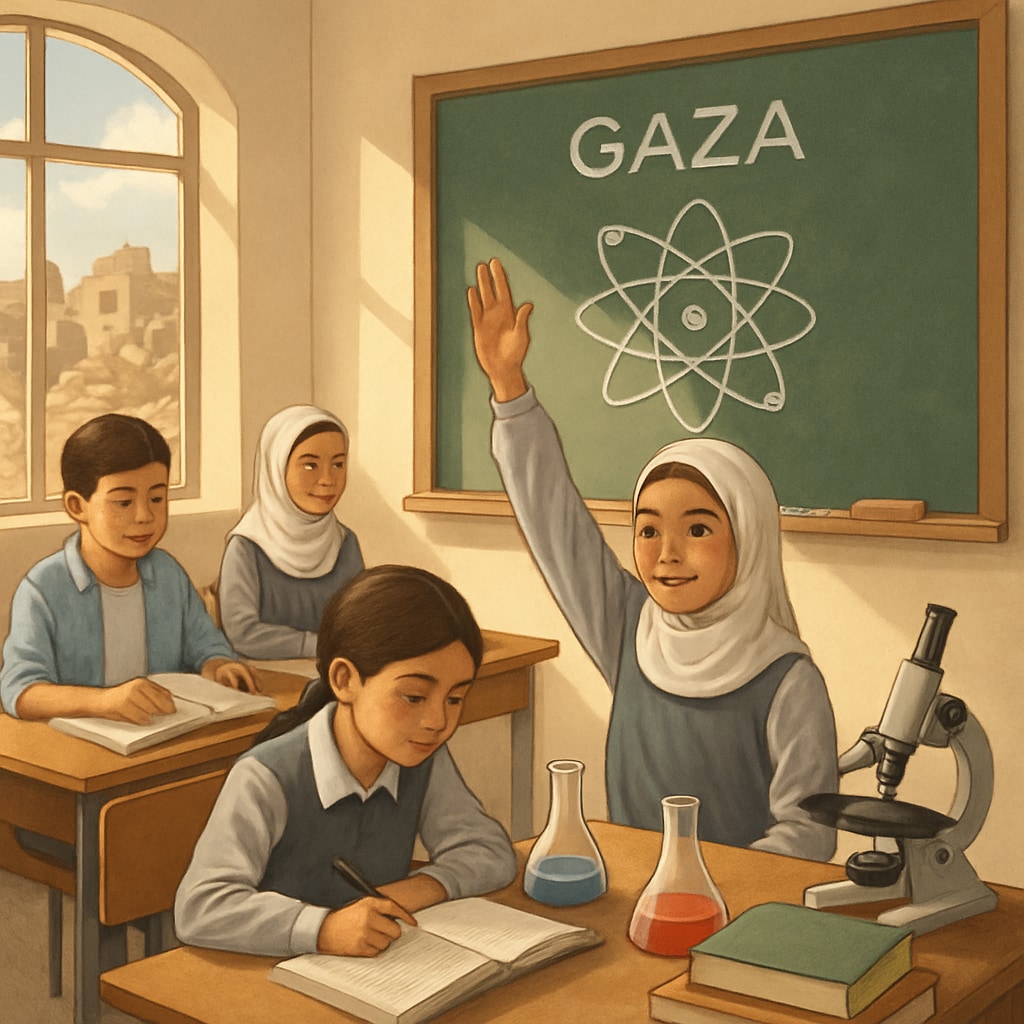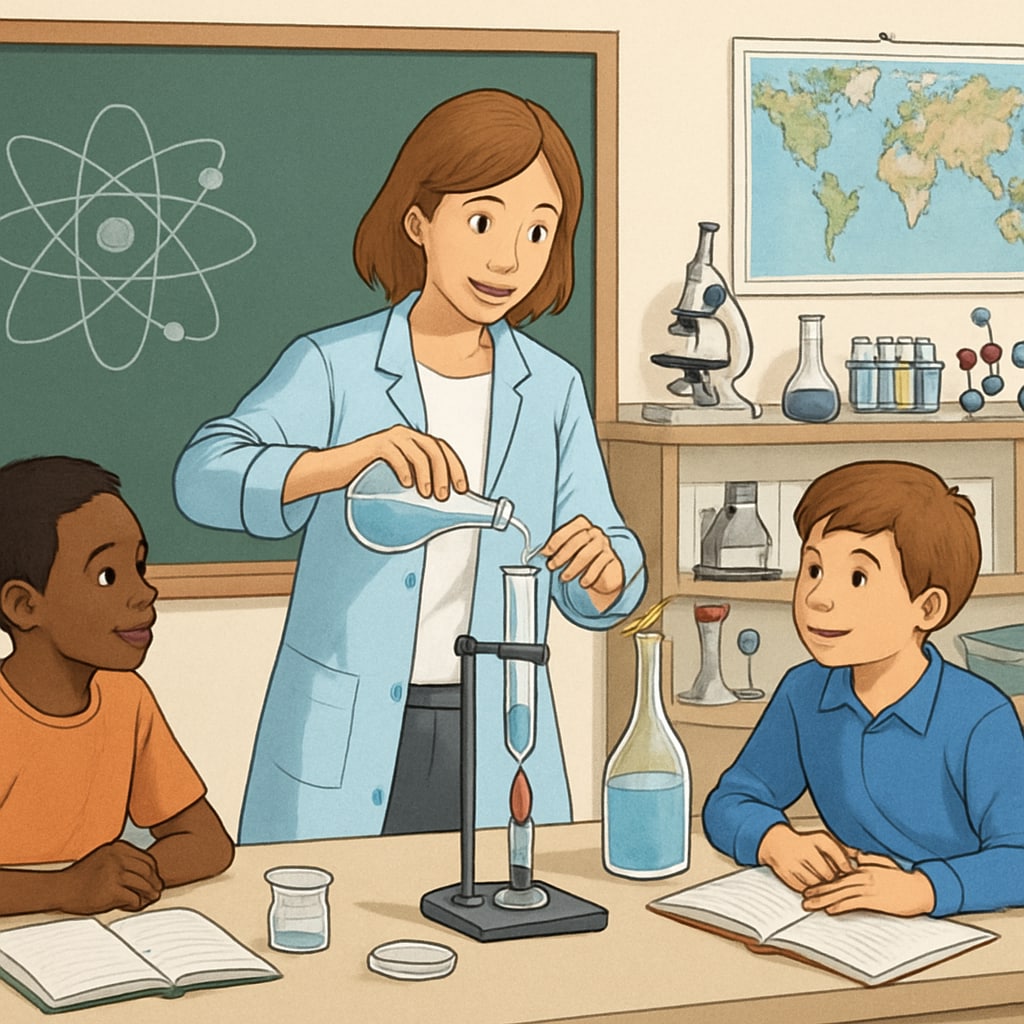In the aftermath of conflict, rebuilding education in Gaza is a critical step toward restoring social stability and fostering hope for future generations. Designing effective teaching frameworks, including science and social studies curricula, is pivotal for equipping students with the knowledge and skills needed to rebuild their communities. This article delves into the essential considerations, challenges, and actionable strategies for constructing science and social studies curricula tailored to the unique needs of Gaza’s schools.
Why Science and Social Studies Matter for Gaza’s Reconstruction
Education plays a transformative role in post-conflict recovery, and subjects like science and social studies are particularly impactful. Science education fosters critical thinking, innovation, and problem-solving skills, which are essential for rebuilding infrastructure and addressing environmental challenges. Social studies, on the other hand, cultivates an understanding of history, culture, and governance, helping students develop a sense of identity and civic responsibility.
In Gaza, where resources are limited and societal divisions remain, these disciplines can serve as tools for empowerment and unity. By focusing on locally relevant topics—such as sustainable resource management or the region’s rich cultural history—educators can inspire students to take an active role in their community’s recovery.

Challenges in Developing Curricula for a Post-Conflict Zone
Creating a science and social studies curriculum for Gaza is not without its challenges. Key obstacles include:
- Resource Scarcity: Limited access to textbooks, laboratory equipment, and technology hampers the implementation of comprehensive science programs.
- Teacher Training: Many educators may lack the training required to teach modern science and social studies topics effectively.
- Cultural Sensitivity: Curricula must respect local traditions and values while introducing global perspectives, which can be a delicate balance.
- Psychosocial Impact: Students and teachers may struggle with trauma from the conflict, affecting their ability to engage fully in the learning process.
Addressing these challenges requires a collaborative effort involving local educators, international experts, and community stakeholders to ensure the curricula are both practical and impactful.
Key Strategies for Curriculum Development
To overcome these challenges and create effective science and social studies curricula, the following strategies can be employed:
- Contextual Relevance: Incorporate local issues and examples into lesson plans. For instance, science lessons could focus on renewable energy solutions for Gaza, while social studies might explore the region’s history and its role in the global context.
- Interactive Learning: Promote hands-on activities, such as experiments and group projects, to engage students and enhance retention.
- Teacher Support: Provide professional development programs to equip educators with modern teaching methodologies and subject expertise.
- Community Involvement: Involve parents and local leaders in curriculum design to ensure it aligns with community needs and values.
- Trauma-Informed Approaches: Integrate psychosocial support into the classroom to help students and teachers cope with the emotional aftermath of conflict.
By implementing these strategies, Gaza’s schools can create a robust educational foundation that prepares students for both personal growth and community leadership.

Examples of Successful Educational Reconstruction
Several post-conflict regions have successfully rebuilt their education systems, offering valuable lessons for Gaza. For example:
- Rwanda: Following the 1994 genocide, Rwanda prioritized education reform, focusing on unity and reconciliation in schools.
- Sierra Leone: After years of civil war, Sierra Leone developed community-driven education programs to rebuild trust and provide quality learning opportunities.
These examples highlight the importance of tailoring educational solutions to a region’s specific needs and involving local communities in the process. Gaza can draw inspiration from these models while addressing its unique challenges.
The Path Forward for Gaza’s Schools
Rebuilding education in Gaza is a monumental task, but it is also an opportunity to lay the groundwork for a brighter future. By designing science and social studies curricula that are relevant, inclusive, and forward-thinking, educators can empower students to become agents of change in their communities. With the right support and a commitment to innovation, Gaza’s schools can transform into hubs of learning and resilience.
As Nelson Mandela once said, “Education is the most powerful weapon which you can use to change the world.” For Gaza, this weapon is not just a tool for change but a beacon of hope.
Readability guidance: Short paragraphs, bullet points, and real-world examples ensure clarity and engagement. The use of active voice and transitional phrases maintains a natural flow, while the inclusion of external links and images enhances credibility and context.


